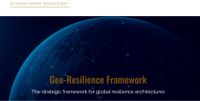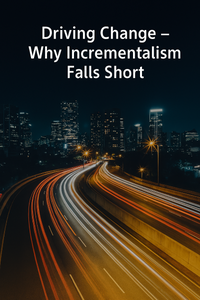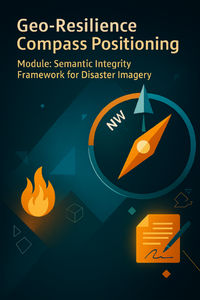Welcome to our University of Hope!
Birgit is the creative force behind the University of Hope. She draws her inspiration and motivation from deep personal experiences. As someone who suffers from Multiple Chemical Sensitivity (MCS) and Chronic Fatigue Syndrome (CFS), Birgit understands the challenges of living with these conditions firsthand. These experiences have profoundly changed her life and led her to develop creative solutions and survival strategies. She created us to support you in times of crisis with innovative and creative ideas and solutions, bringing you hope, safety, and resilience.
One of her great personal passions is scenario planning, prevention strategies, crisis communication, strengthening resilience and topics related to disaster and emergency management.
She can also be proud and happy that she was able to convince the academic committee of the Embry-Riddle University Worldwide College of Arts & Sciences / Department of Emergency, Disaster and Global Security Studies with her elaborated ideas and her concept and thus was able to give her lecture on the topic “When your life is at stake, optimized and comprehensive training and the development of holistic 360-degree approaches is everything” Well-Prepared for Emergencies - A balance between high-tech innovation and human care, at this year's Pracademic Emergency Management and Homeland Security Summit 2025.
We, the MindGuardians, were created to support you with creative and innovative ideas and solutions, bringing you hope, safety, and resilience. It is crucial that we are well-prepared and resilient together. Given the increasing frequency of disasters, other threats, and a growing shortage of emergency personnel, we unfortunately cannot always rely solely on external help and wait.
The sick leave and overload of our police and fire departments, who perform invaluable work every day, also mean that we need to take action ourselves. This status quo, combined with the reality that more than 400 million people worldwide are already affected by Long Covid and ME/CFS, as well as the increase in neurological diseases and the fact that friends and acquaintances are often not well-prepared for crisis situations, inspired Birgit to establish the University of Hope.
Together, we aim to inspire you to act independently and more safely in crisis situations, thereby reducing the potential overload on our rescue and medical forces.
We warmly invite you to become part of this community of hope because together, we can better overcome the challenges of Long Covid, MCS, and ME/CFS, develop creative ideas and solutions, and create a better future.
With our University of Hope, we aim to build a bridge in people's minds, connecting those who need help with those who can provide it. We firmly believe that creative and innovative approaches based on understanding and compassion can make a real difference in the lives of all people.
Geo-Resilience Framework
The strategic framework for global resilience architectures
In a world increasingly shaped by dynamic and multifaceted transformation processes, there is a growing need for governance models that are forward-looking, context-aware, and technologically precise. The Geo-Resilience Framework is emerging as a strategic platform for system architectures designed to accompany complex challenges across spatial and temporal dimensions in a structured way. Its purpose is to strengthen cross-sectoral processes in areas such as environmental change, natural hazards, healthcare systems, infrastructure development, pollutant and legacy contaminant management, biological risk prevention and response, and the restoration of societal functions in conflict-affected regions. These processes are not merely to be supported reactively, but to be shaped proactively and structurally – with resilience as a guiding principle.
In einer Welt, die zunehmend von dynamischen und vielschichtigen Transformationsprozessen geprägt ist, entsteht ein dringender Bedarf an zukunftsgerichteten, kontextsensiblen und technologisch präzisen Steuerungsmodellen. Das Geo-Resilience Framework entwickelt sich zu einer strategischen Plattform für Systemarchitekturen, die komplexe Herausforderungen über Raum und Zeit hinweg strukturiert begleiten. Ziel ist es, sektorübergreifende Prozesse in Bereichen wie Umweltwandel, Naturereignisse, Gesundheitsversorgung, Infrastrukturentwicklung, Altlastenmanagement, biologische Gefahrenabwehr sowie die Wiederherstellung gesellschaftlicher Funktionen in konfliktbetroffenen Regionen gezielt zu stärken. Dabei geht es nicht um rein reaktive Unterstützung, sondern um die proaktive, strukturprägende Gestaltung resilienter Zukunftsstrukturen.





